Tasting the Land of Life
Foraging is a great way to experience how Israel is the living body of the Jewish people.
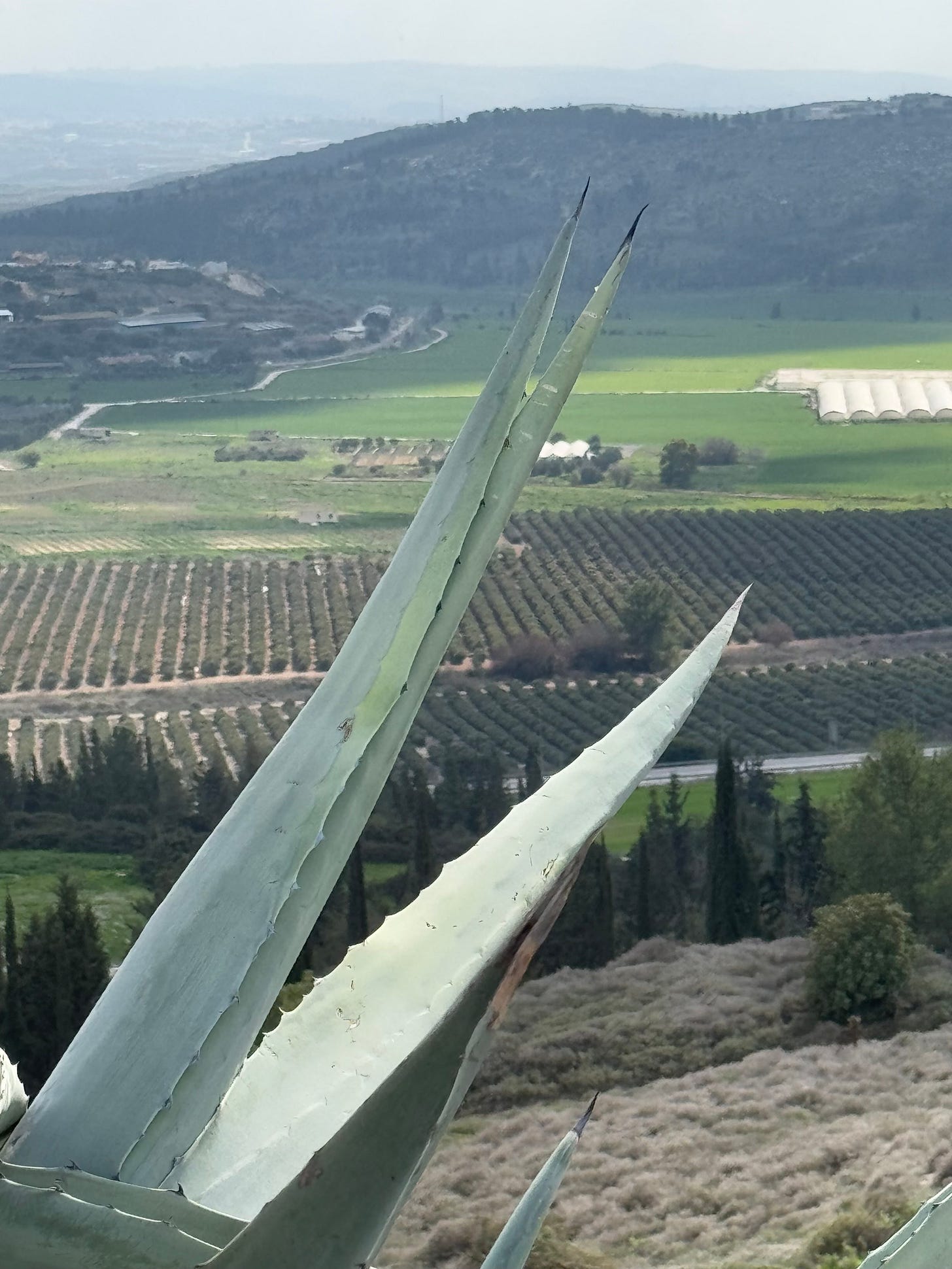
A version of today’s post was recently published recently in the Jewish Link’s special Tu Beshvat edition. Check it out here.
Dear Healthy Jew,
Israel isn’t only a country that sits on a conflicted corner of the Middle East, just as the Jewish people aren’t just a bunch of people who share a common history, philosophy, or set of morals.
Rather, as God told Moses to tell Pharaoh in His first message to the Egyptian king:
“My firstborn son is Israel.”
God called us “son” in the singular.
The Jewish nation is a living human form that reaches farther and higher than any individual person can ever hope to reach with his own limited mind and abilities. We know and emulate God by learning and living according to His Torah — all of us together. We possess a common soul.
But every human being also has a body. Where is the body of Israel? It’s great to have a common soul somewhere up in Heaven, and it’s awesome when we occasionally see its effects down here. But we’re usually regular people living inside separate physical bodies. Everything we do, for better or worse, happens in the material world.
The body of the Nation of Israel is the Land of Israel.
The Nation of Israel breathes life into the Land of Israel through living there by God’s will, as expressed in its special Torah laws. We give form and purpose to our little corner of the material world.
We need this material home, where our spiritual ideals are grounded — literally! — in physical earth. The land gives the nation its body, an island of unity in a world of separation and strife.
In case you haven’t heard about it yet, I recently published a book about how exactly Israel is the healthy body of the Jewish people. You can learn much more about this idea there.
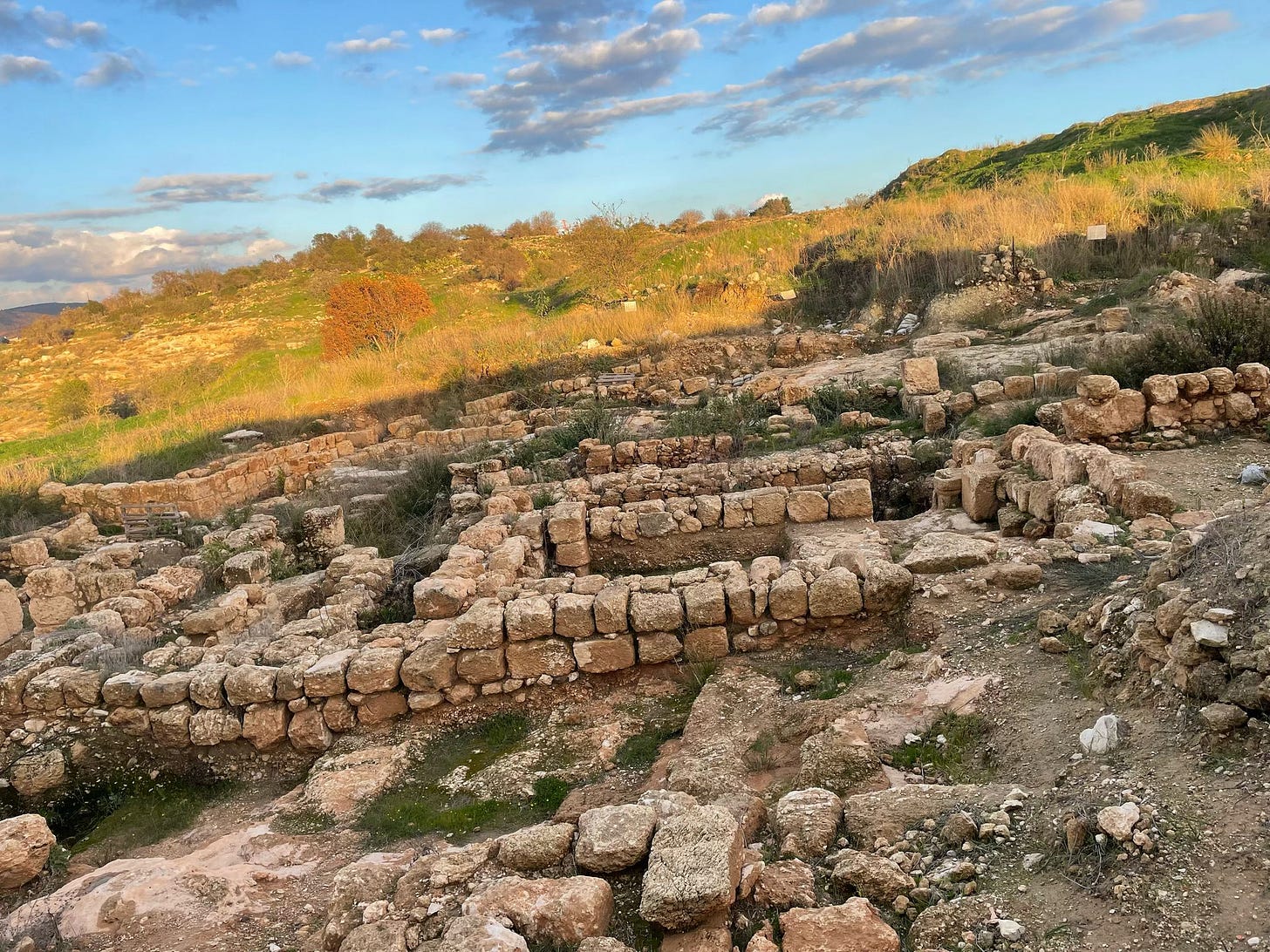
How can we directly experience Israel as a living, thriving body? We might believe that Israel is our national body, but we usually experience it as a tiny country piled up with concrete-and-steel towers connected together by strips of burnt tar that are constantly trampled by zooming 4-wheeled metal boxes with raging fires (or big batteries) under them.
There are many ways we can come to appreciate the living heritage of the Land: hiking, camping farming, even a walk in the countryside right outside of most Israeli cities.
One of my favorites is foraging for edible and medicinal plants in Israel’s natural world, surrounded by the ancient Jewish (and Roman) towns whose inhabitants ate the ancestors of these plants. Foraging is fascinating, fun, and an excellent entrance to healthy living, and offers a unique taste – literally - of the living Land of Israel.
Wild plants silently bear witness to the march of time, bonding together places and people of the past, present, and future. Israel’s history comes alive when it’s more than some half-buried buildings and stones.
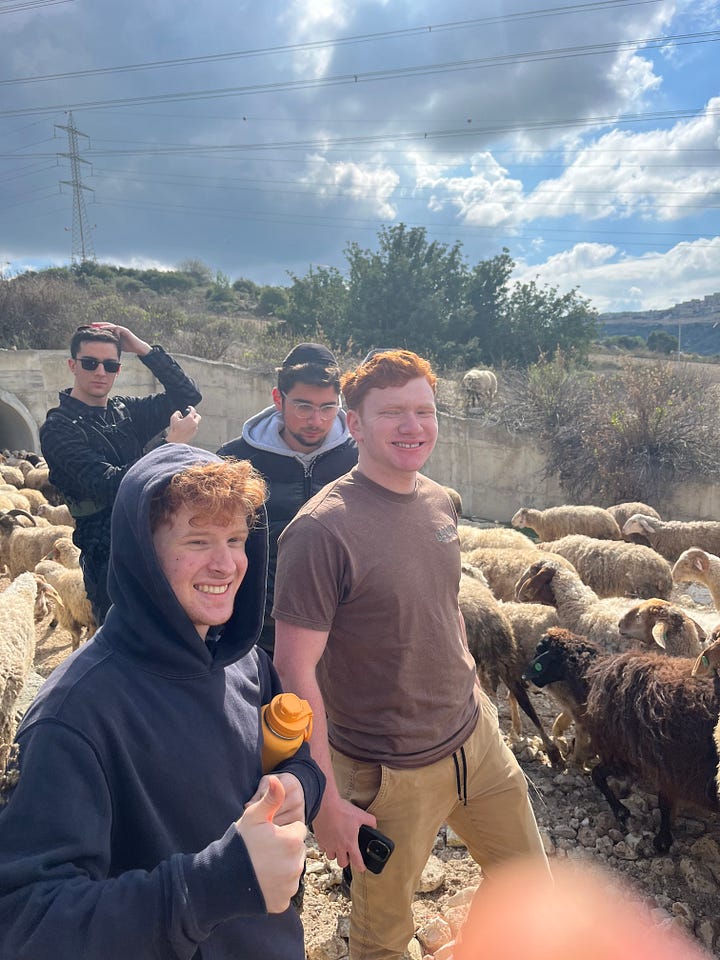

I’ve been out foraging hundreds of times, but I still stand in awe when contemplating that this leaf, seed, flower, or fruit is a direct descendant of the leaves, seeds, flowers, and fruits that our ancestors ate here in the times of the Beis Hamikdash (and before).
The story of Israel’s life is told in the lives of its plants.
Wild lettuce - which grows around Pesach time - the original marror that’s actually bitter (very bitter!). It’s also a calming herb because of the small quantities of opioids in its milky sap.
David fought Goliath in the Elah Valley, named after the Elah (terebinth) tree which sports delicious berries whose astringent properties help with canker sores and ulcers. There are indeed many Elah trees in this fertile area right south of Ramat Bet Shemesh. (I often guide foraging walks there.)
The common za’atar shrub is probably the Torah’s aizov. Picking a bunch of stalks, we can imagine how this was used as a brush for the Pesach offering in Egypt, and the purification rituals of the parah aduma and metzora.
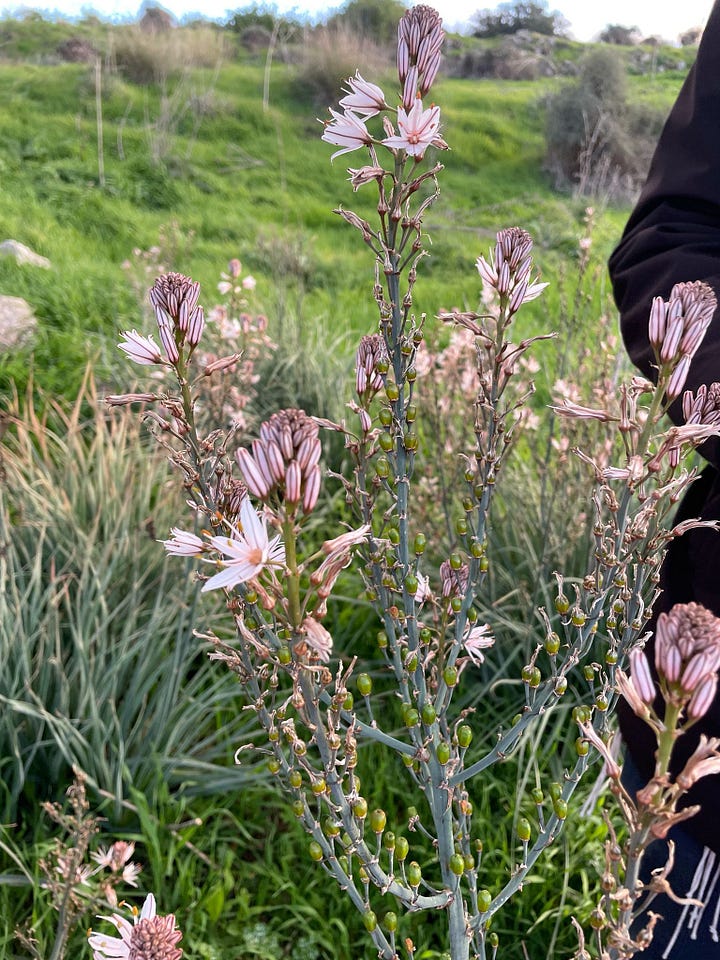
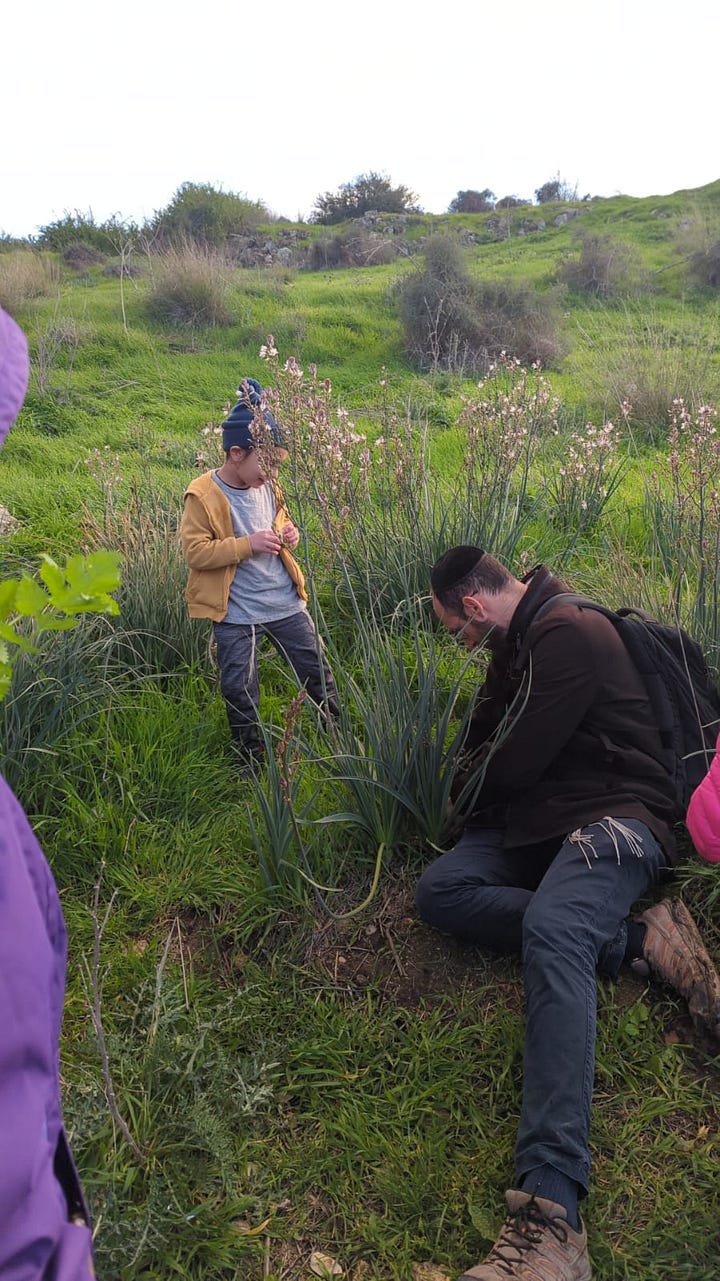
Foraging in our nations’s body also provides a hands-on experience for healthy living in our individual bodies:
Many wild leaves, flowers, and fruits are unusually packed with vitamins, minerals, phytonutrients, and even medicinal compounds. People often ask on foraging walks, “So what is this plant good for?” My first answer is usually that it’s very, very good for food.
Foraging was humankind’s original exercise: moving around in search for sustenance. When walking in nature to gather food, we're deeply aware that we're journeying through the world and life.
Foraging teaches stability, equanimity, and balance. Plant life stems from far beneath the ground, its sustenance and growth rooted in the timeless, motionless earth. By directly connecting with the world of plants, we too can leave the frenzy of life’s activities and worries, becoming just a bit plant-like.
So next time you’re in Israel, drop me a line and we’ll set up a time to forage together in the healthy body of the Jewish people.
Thank you for reading Healthy Jew.
Here are 2 great paths to continue the journey:
Also check out this intro and index to explore hundreds of posts about our 3 Healthy Jew topics: Wellness with Wisdom, Land of Life (Israel), and Sensible Spirituality.
Finally, always feel free to reach out here with any comments, questions, or complaints:
I look forward to hearing from you!
Be well,
Rabbi Shmuel Chaim Naiman
Please note: All content published on Healthy Jew is for informational and educational purposes only. Talk to a qualified professional before taking any action or substance that you read about here.




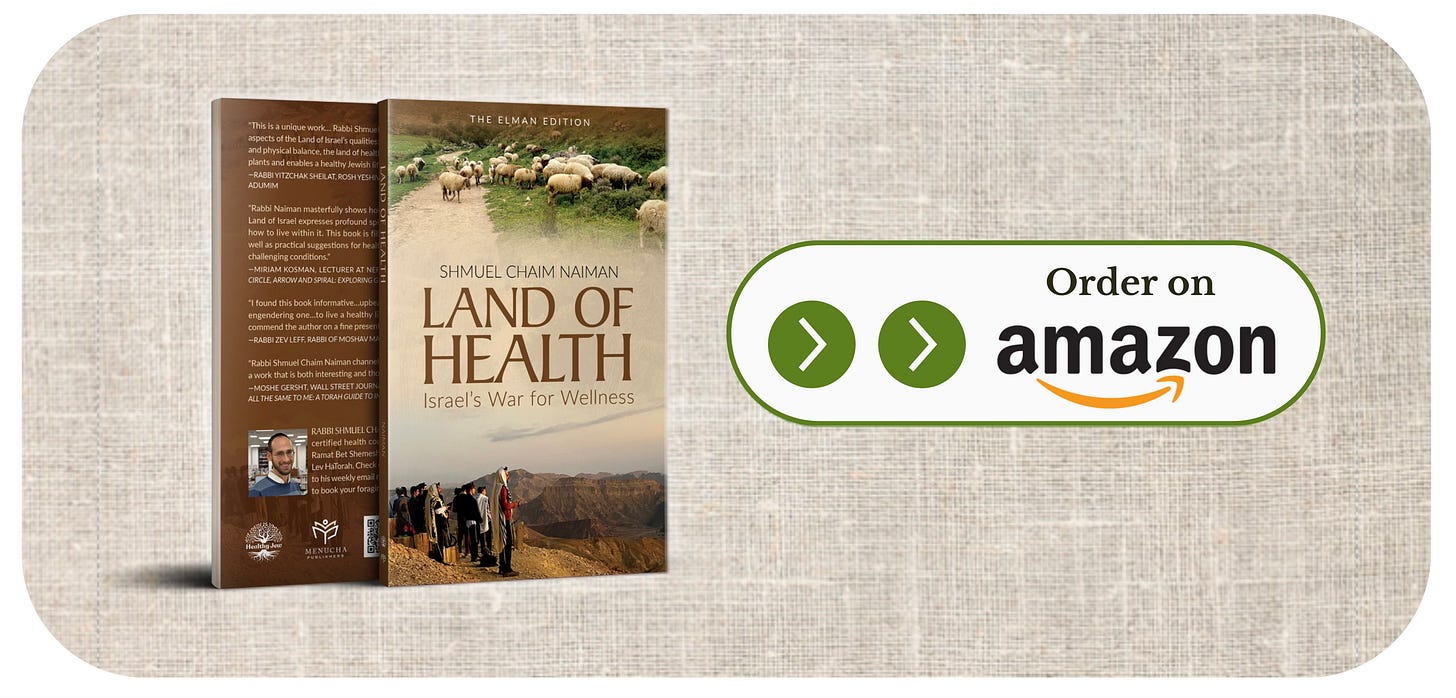



Beautifully said, Shmuel Chaim.
I rather believe many of the benefits of these plants are yet to be discovered (by scientists, that is).